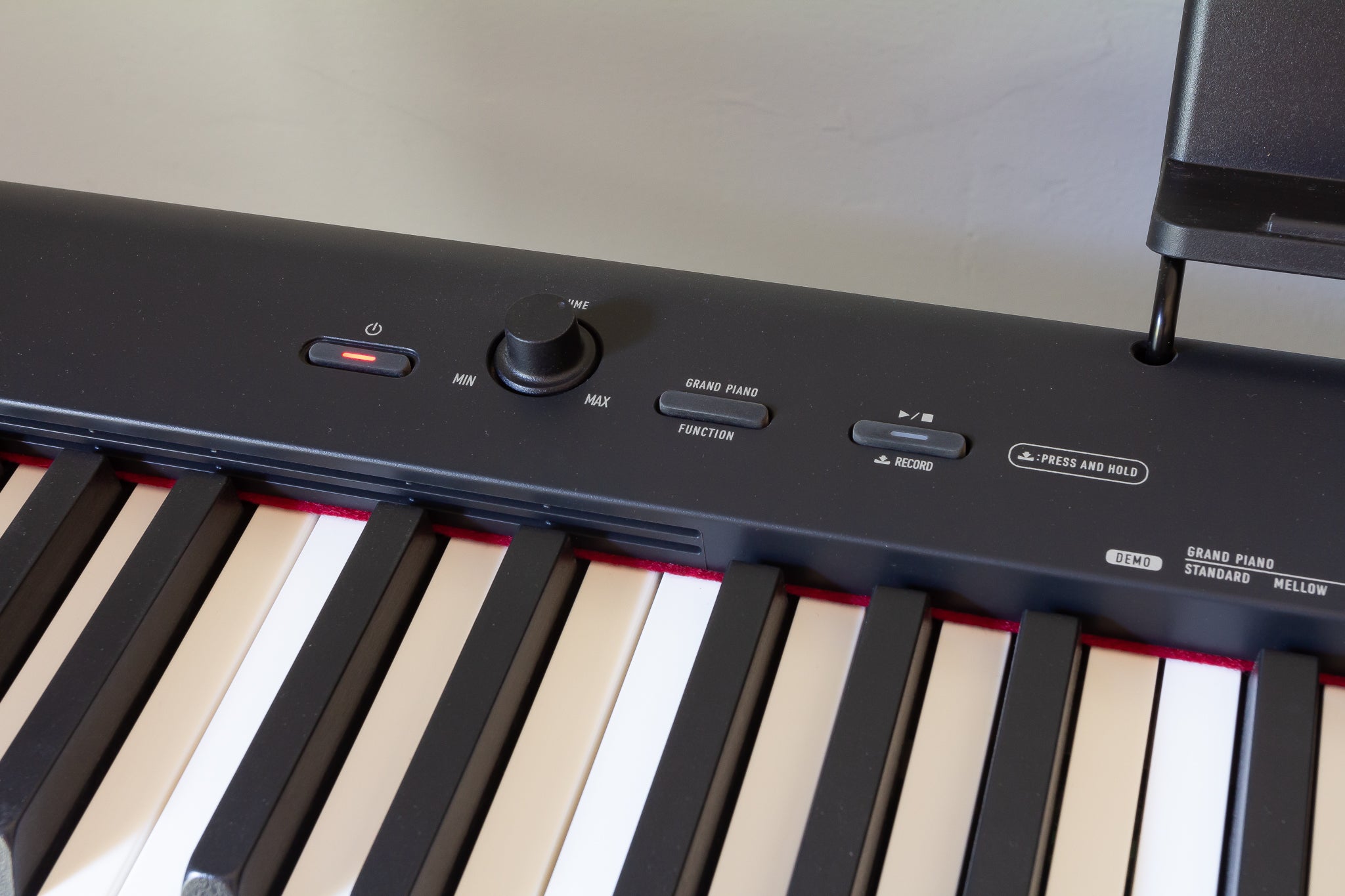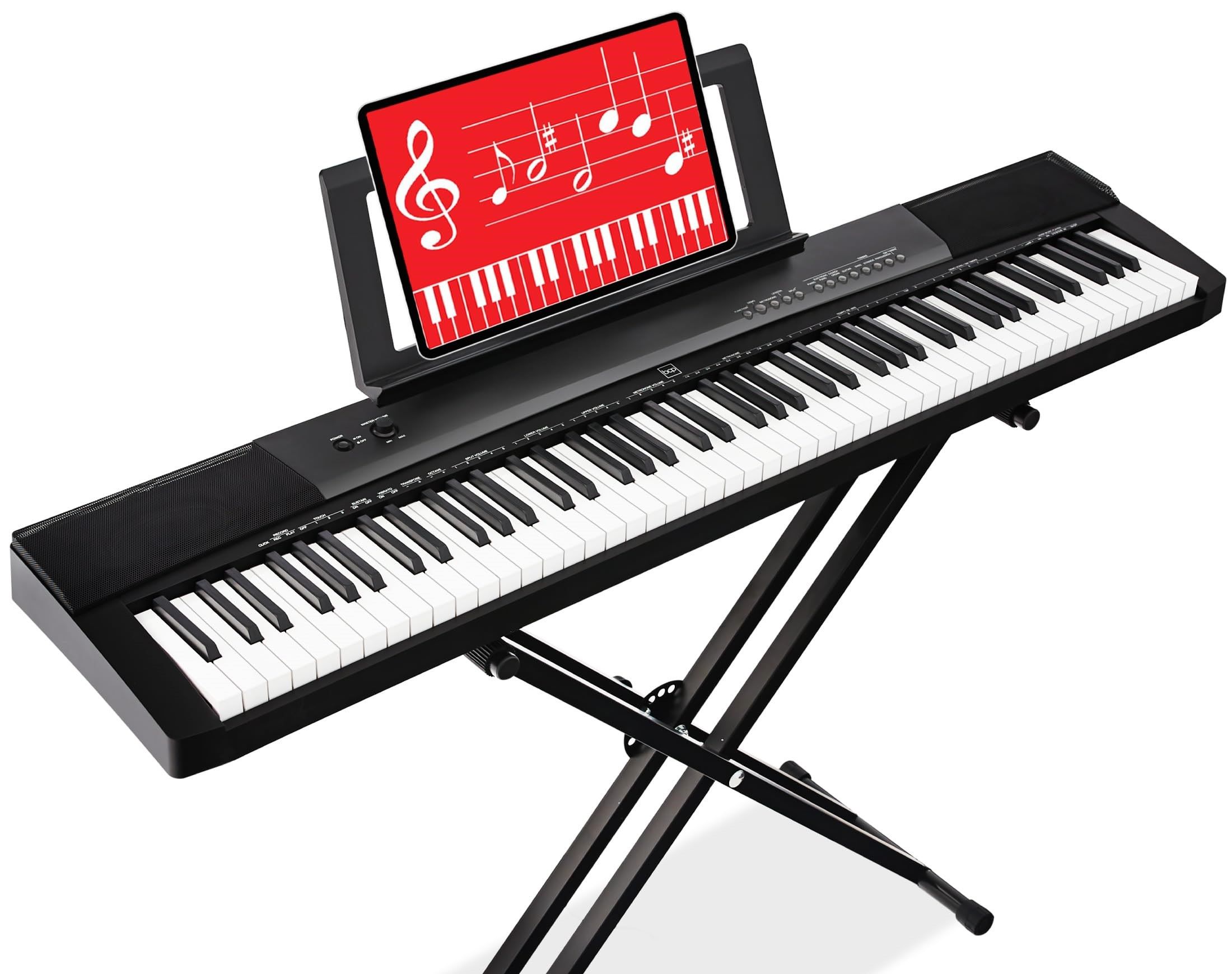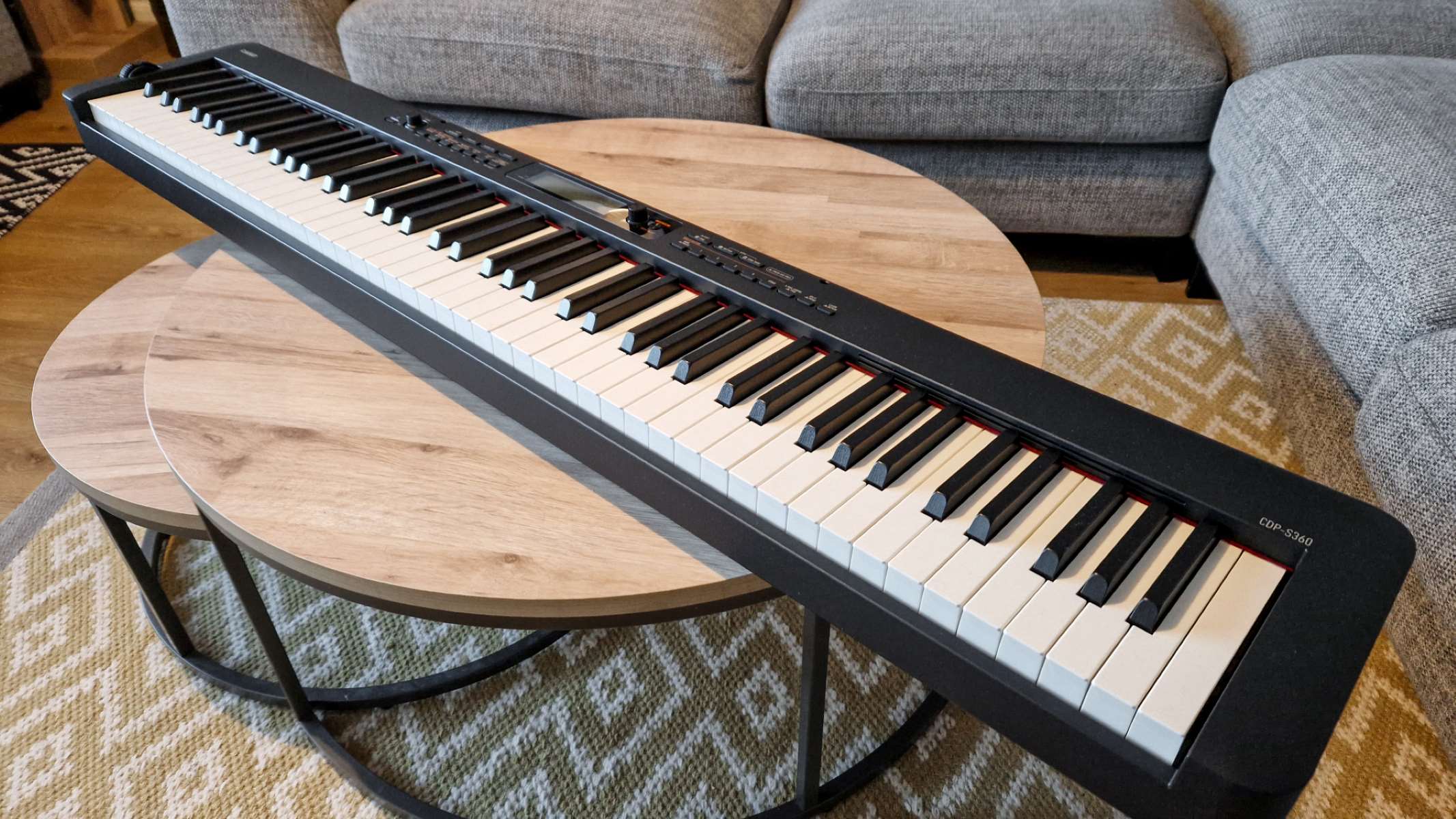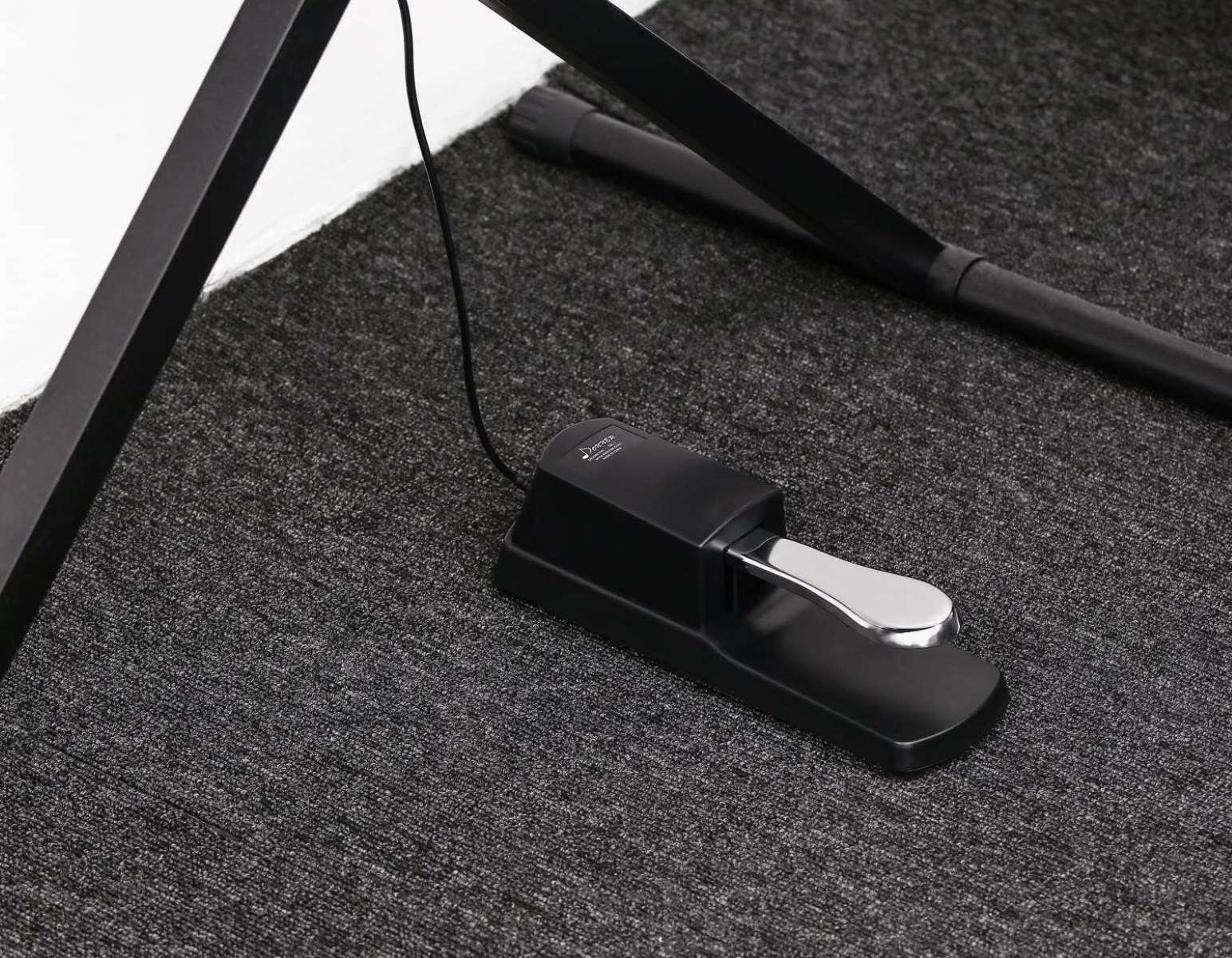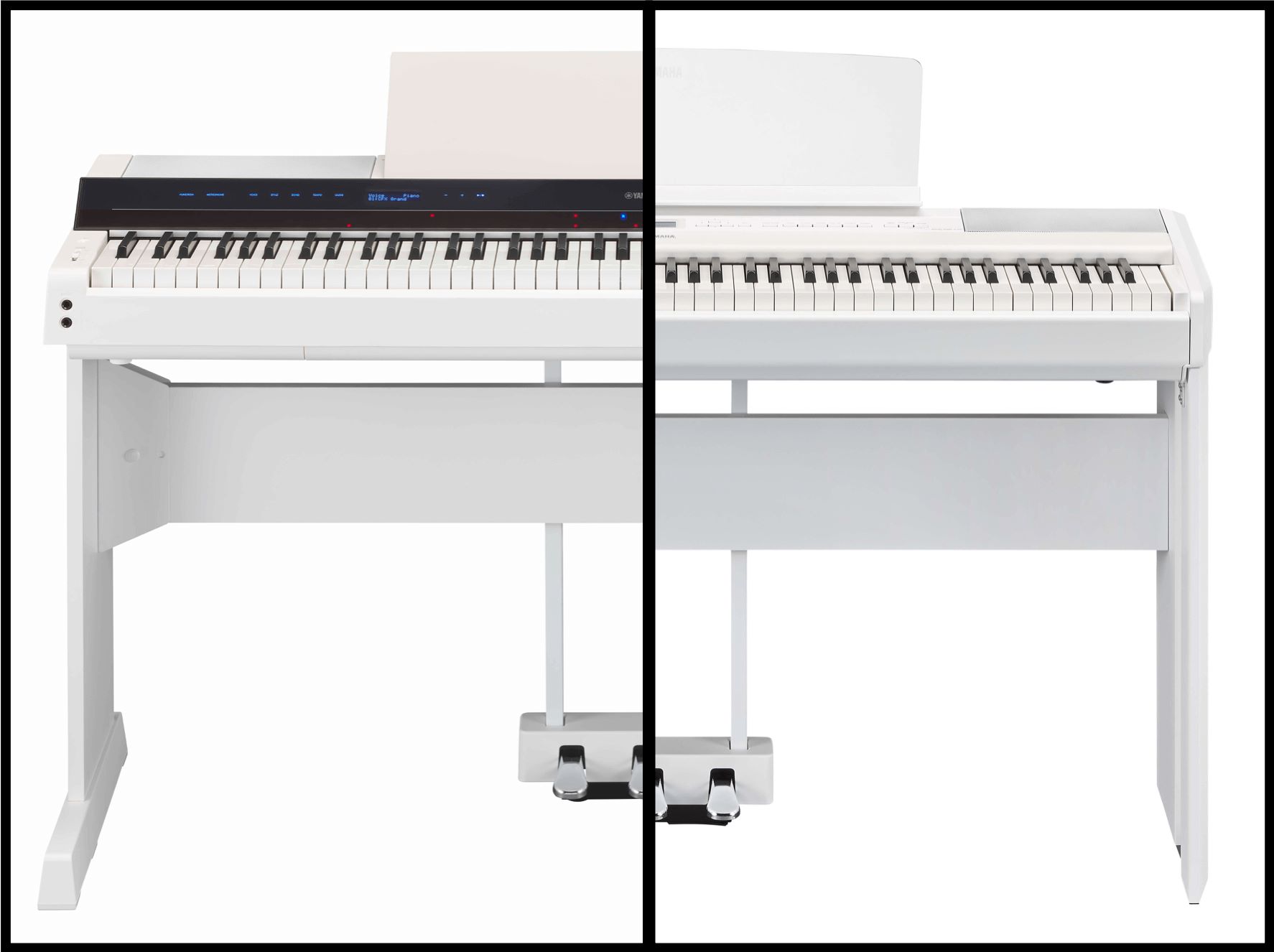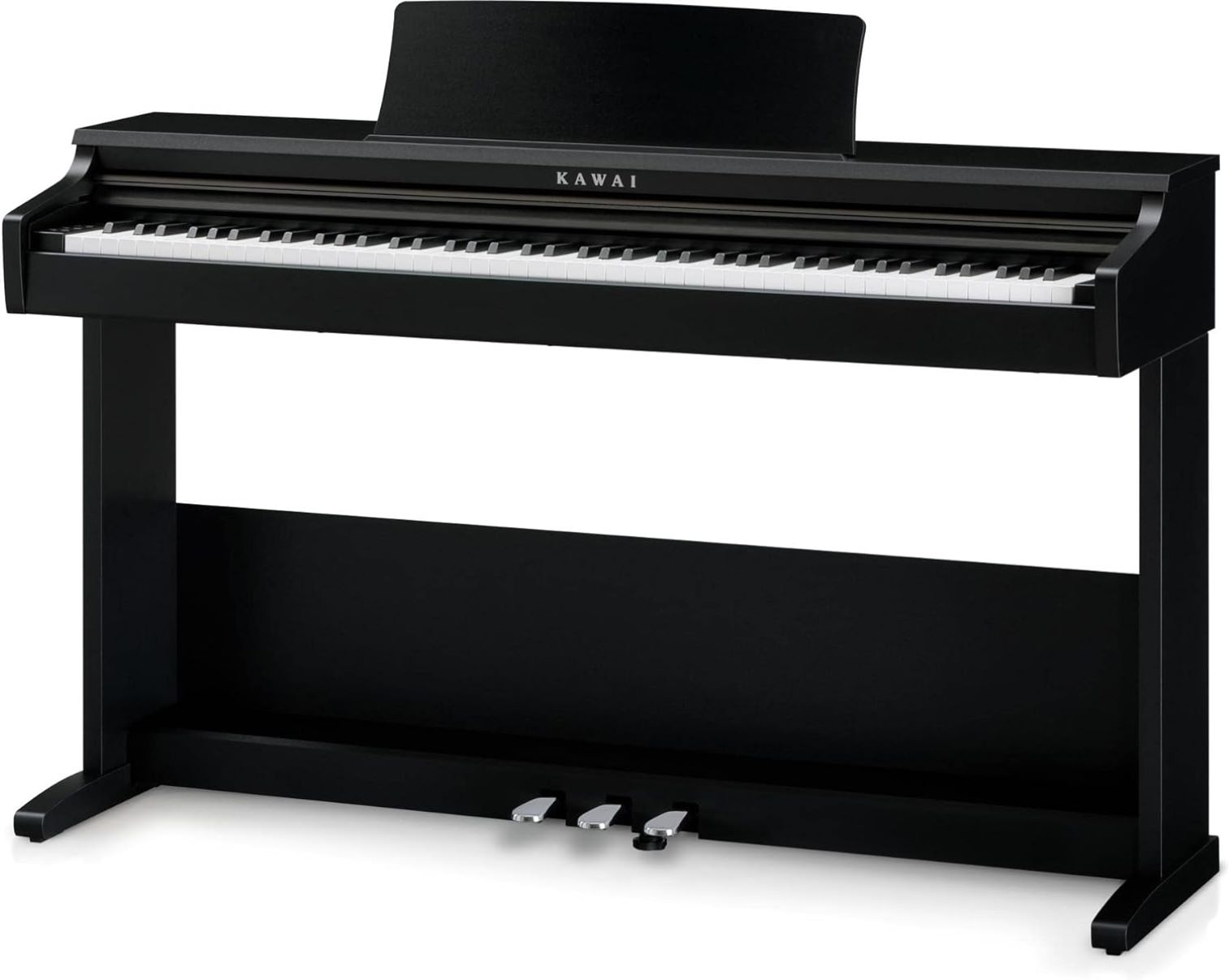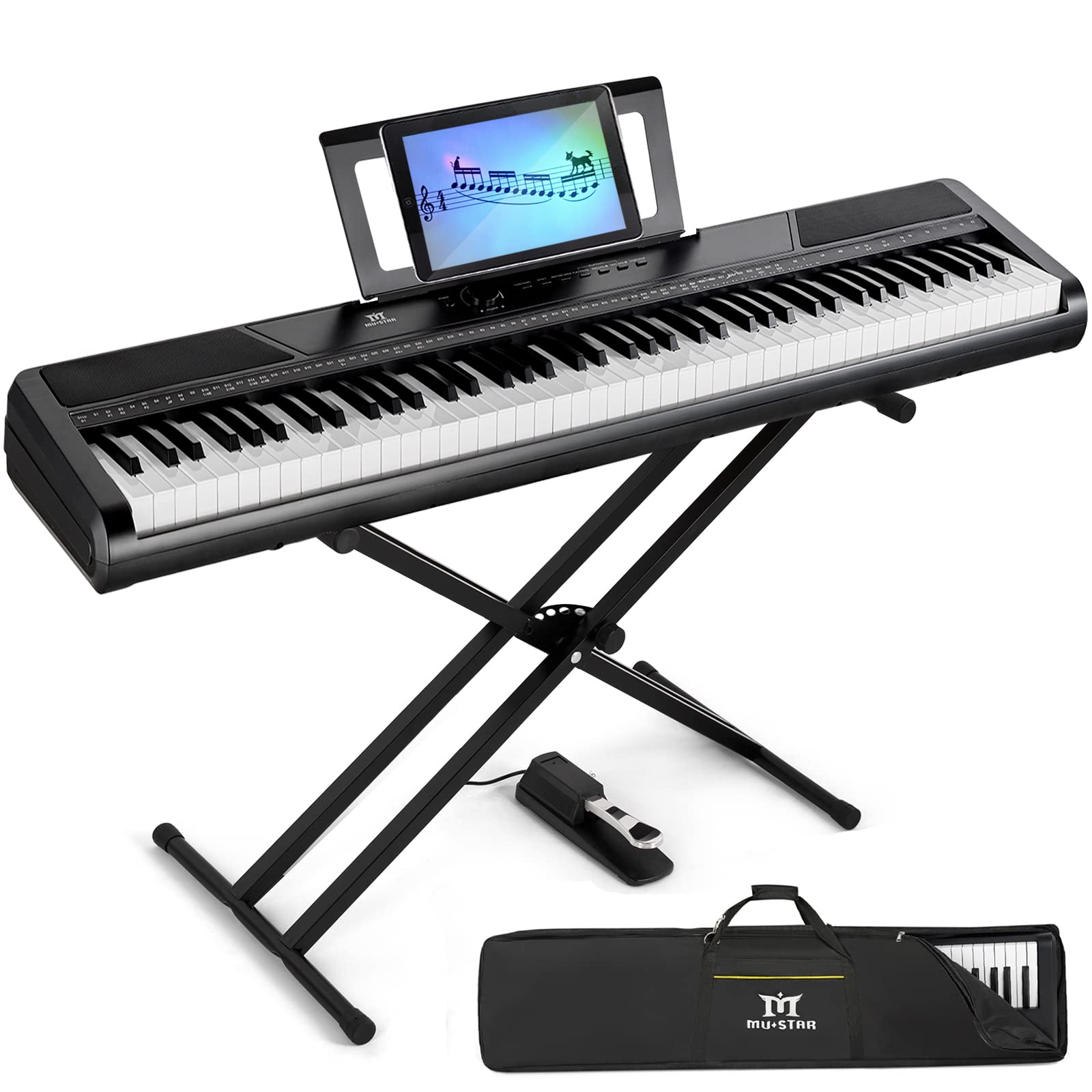Introduction
Introduction
When it comes to choosing a digital piano, the options can be overwhelming. With a myriad of brands, models, and features available, it's essential to navigate through the choices to find the best fit for your musical aspirations. Whether you're a seasoned pianist or just starting your musical journey, selecting the right digital piano can significantly impact your playing experience.
Digital pianos have evolved to replicate the sound and feel of acoustic pianos, providing a versatile and convenient alternative for musicians. These instruments offer a range of features, from weighted keys to advanced sound technology, catering to various playing styles and preferences. Understanding the key features and differences among leading brands such as Yamaha, Casio, Kawai, and Roland can guide you in making an informed decision.
In this comprehensive guide, we will delve into the essential aspects of digital pianos, explore the standout features offered by each brand, and help you discern which brand of digital piano might be the best match for your musical endeavors. Whether you prioritize authentic piano sound, responsive key action, or innovative technology, this exploration will equip you with the knowledge needed to make a well-informed choice. Let's embark on this musical journey to uncover the best brand of digital piano for your musical expression.
Key Features to Consider
When evaluating digital pianos, several key features warrant careful consideration to ensure that the instrument aligns with your musical preferences and playing style. These features can significantly influence the overall playing experience and the versatility of the digital piano. Here are the essential factors to contemplate:
- Key Action: The responsiveness and feel of the keys are crucial in emulating the touch of an acoustic piano. Weighted keys that simulate the hammer action in acoustic pianos provide a more authentic playing experience, while graded hammer action keys offer a realistic resistance across the keyboard.
- Sound Quality: The quality and authenticity of the piano sound are pivotal. Advanced sound sampling technology that captures the nuances of acoustic pianos, such as sympathetic resonance and key-off simulation, contributes to a more lifelike and expressive sound.
- Polyphony: Polyphony refers to the number of notes a digital piano can produce simultaneously. Higher polyphony counts allow for more complex musical passages without notes dropping out, making it essential for advanced repertoire and layering sounds.
- Touch Sensitivity: The ability to control the volume and sound based on the force of key presses adds expressiveness to playing. Adjustable touch sensitivity settings accommodate different playing dynamics.
- Portability and Design: The portability and aesthetics of the digital piano are vital considerations, especially for gigging musicians and those with limited space. Compact and lightweight designs with easy assembly options offer convenience without compromising performance.
- Additional Features: Consider the availability of features such as built-in metronomes, recording capabilities, connectivity options, and pre-installed voices and effects, which can enhance practice sessions and performance versatility.
By carefully evaluating these key features, you can narrow down your options and identify the digital piano that resonates with your musical sensibilities and technical requirements.
Yamaha Digital Pianos
Yamaha has established itself as a prominent force in the digital piano market, renowned for its commitment to innovation, craftsmanship, and sound quality. The brand offers a diverse range of digital pianos that cater to musicians of all levels, from beginners to professional performers. Yamaha’s digital pianos are characterized by several standout features:
- Graded Hammer Standard (GHS) and Graded Hammer 3 (GH3) Key Action: Yamaha’s digital pianos often feature graded hammer action keys that replicate the feel of an acoustic piano. The GHS and GH3 mechanisms provide a weighted key response that progressively becomes lighter as you move up the keyboard, mirroring the touch of a traditional piano.
- Advanced Wave Memory (AWM) Sound Sampling: Yamaha’s proprietary AWM technology ensures that the digital pianos produce rich, nuanced, and authentic piano tones. The sampled sounds are derived from high-quality acoustic pianos, capturing the subtleties of each note with remarkable clarity and expression.
- Virtual Resonance Modeling (VRM): Some of Yamaha’s premium digital pianos incorporate VRM technology, which simulates the intricate resonance and interactions between strings, soundboard, and pedals in an acoustic piano. This feature adds depth and realism to the instrument’s sound, enhancing the overall playing experience.
- Yamaha CFX and Bosendorfer Imperial Piano Samples: The inclusion of samples from Yamaha’s renowned CFX concert grand and Bosendorfer Imperial grand pianos elevates the sonic capabilities of select digital piano models, delivering concert-worthy sound quality for discerning pianists.
- Intuitive Control Interface and Connectivity: Yamaha digital pianos often feature user-friendly control interfaces, allowing for easy navigation of settings and functions. Additionally, connectivity options such as USB and MIDI connectivity enable seamless integration with external devices and software for recording and performance purposes.
Yamaha’s commitment to craftsmanship, advanced technology, and a diverse product lineup makes their digital pianos a compelling choice for musicians seeking authentic piano experiences in a digital format.
Casio Digital Pianos
Casio has carved a notable niche in the digital piano market by offering a versatile range of instruments that combine advanced features with accessibility. The brand’s digital pianos are designed to cater to musicians across skill levels, from entry-level players to seasoned performers. Casio’s digital pianos boast several distinctive features that set them apart in the realm of digital musical instruments:
- Tri-Sensor Scaled Hammer Action Keyboard: Casio’s digital pianos often feature a Tri-Sensor Scaled Hammer Action Keyboard, which replicates the weighted feel and response of an acoustic piano. The three sensors in each key detect subtle variations in touch, enabling a nuanced and expressive playing experience.
- AiR Sound Source: Casio’s Acoustic and Intelligent Resonator (AiR) sound source technology is integral to the brand’s digital pianos, delivering authentic grand piano sounds with rich dynamics and tonal depth. The meticulous sampling of acoustic piano tones ensures a compelling and immersive musical experience.
- Hex Layer Sound Technology: Some of Casio’s premium digital pianos feature Hex Layer sound technology, allowing for the seamless layering of different instrument tones and effects. This versatility empowers musicians to create complex and textured soundscapes, expanding the creative possibilities of the instrument.
- Multi-Dimensional Morphing AiR Sound Source: Casio’s advanced sound source technology incorporates multi-dimensional morphing, which adapts the sound dynamics in response to the player’s touch and articulation. This feature adds a layer of expressiveness and realism to the instrument’s sonic output.
- Concert Play and Lesson Functionality: Casio digital pianos often include integrated features such as Concert Play, which allows players to perform alongside orchestral recordings, and lesson functions that facilitate skill development and practice. These interactive elements make the learning process engaging and immersive.
Casio’s commitment to blending technological innovation with musical accessibility makes their digital pianos an appealing choice for musicians seeking versatile instruments that offer advanced features without compromising user-friendly design and affordability.
Kawai Digital Pianos
Kawai has garnered acclaim in the digital piano landscape for its dedication to craftsmanship, innovation, and the pursuit of authentic piano experiences. The brand’s digital pianos encompass a diverse array of instruments tailored to meet the needs of musicians across proficiency levels, from aspiring players to seasoned professionals. Kawai’s digital pianos are distinguished by several noteworthy features that contribute to their allure:
- Responsive Hammer Action (RHA) Keyboard: Kawai’s digital pianos often feature the Responsive Hammer Action keyboard, which replicates the distinctive touch and response of an acoustic piano. The graded hammer action and triple sensor key detection technology deliver a realistic playing feel, allowing for expressive performances.
- Harmonic Imaging Sound Technology: Kawai’s proprietary Harmonic Imaging sound technology underpins the brand’s digital pianos, offering a rich and expansive palette of piano sounds. The meticulous sampling of acoustic piano tones, coupled with advanced resonance modeling, results in immersive and authentic sonic experiences.
- Virtual Technician Functionality: Some of Kawai’s digital pianos incorporate Virtual Technician functionality, allowing players to customize various aspects of the instrument’s sound and touch response. This level of customization empowers musicians to tailor the piano’s characteristics to suit their individual preferences and playing style.
- Grand Feel Pedal System: Kawai’s premium digital pianos often feature the Grand Feel Pedal System, which replicates the responsive feel and subtle nuances of the pedals in a grand piano. This attention to detail enhances the instrument’s expressive capabilities and contributes to a more immersive playing experience.
- Integrated Lesson and Practice Features: Kawai digital pianos frequently include integrated lesson and practice functionalities, catering to learners and educators. Features such as lesson books, practice drills, and song recorder capabilities facilitate skill development and offer a comprehensive learning environment.
Kawai’s unwavering commitment to delivering authentic touch, tone, and technological innovation positions their digital pianos as compelling choices for musicians seeking instruments that embody the essence of acoustic pianos while embracing the advantages of digital technology.
Roland Digital Pianos
Roland has solidified its position as a pioneering force in the realm of digital musical instruments, offering a diverse lineup of digital pianos that seamlessly blend cutting-edge technology with musical artistry. The brand’s digital pianos cater to musicians across a spectrum of skill levels, from students and enthusiasts to professional performers. Roland’s digital pianos are characterized by several standout features that underscore their appeal and innovation:
- PHA-50 Progressive Hammer Action Keyboard: Roland’s digital pianos often feature the PHA-50 keyboard, which combines wood and molded materials to deliver a responsive and authentic playing experience. The progressive hammer action and escapement mechanism recreate the feel of an acoustic grand piano, offering nuanced touch sensitivity.
- SuperNATURAL Piano Modeling: Roland’s SuperNATURAL Piano Modeling technology forms the core of the brand’s digital pianos, producing rich, expressive, and dynamic piano sounds. This advanced modeling technology captures the complex interactions between notes, delivering an organic and immersive sonic experience.
- Bluetooth Connectivity and App Integration: Some of Roland’s digital pianos offer Bluetooth connectivity, enabling seamless integration with educational apps, music production software, and digital sheet music platforms. This connectivity enhances the instrument’s versatility and facilitates interactive learning and performance experiences.
- Hybrid Grand Keyboard: Roland’s premium digital pianos often feature the Hybrid Grand Keyboard, which combines organic wood elements with advanced sensor and escapement technologies. This innovative keyboard design offers an authentic touch and response, catering to the discerning demands of pianists.
- Dynamic Sound Customization: Roland digital pianos frequently incorporate dynamic sound customization features, allowing players to shape and tailor the instrument’s sound characteristics in real-time. From adjusting tonal qualities to modifying resonance and ambience, these customization options empower musicians to craft personalized sonic palettes.
Roland’s unwavering commitment to technological innovation, expressive musicality, and user-centric design positions their digital pianos as compelling choices for musicians seeking instruments that embody the pinnacle of digital piano craftsmanship while offering a wealth of creative possibilities.
Conclusion
Choosing the best brand of digital piano is a nuanced endeavor that hinges on a harmonious interplay of personal preferences, technical requirements, and musical aspirations. Yamaha, Casio, Kawai, and Roland stand as stalwarts in the realm of digital pianos, each offering a distinctive array of instruments characterized by unique features and technological innovations.
Yamaha’s digital pianos are celebrated for their commitment to authenticity, advanced sound technology, and responsive key action, making them an ideal choice for musicians seeking a traditional yet cutting-edge playing experience. Casio’s digital pianos shine with their blend of technological prowess, user-friendly design, and affordability, catering to a broad spectrum of players and learners.
Kawai’s digital pianos embody the essence of acoustic pianos through meticulous craftsmanship, innovative sound technology, and customizable features, appealing to musicians who prioritize expressive touch and immersive sonic experiences. Roland’s digital pianos stand at the vanguard of technological innovation, offering dynamic sound modeling, interactive connectivity, and a fusion of traditional and modern design elements, making them a compelling choice for forward-thinking musicians.
Ultimately, the best brand of digital piano for you hinges on a synergy between your musical sensibilities, technical requirements, and the unique sonic and tactile qualities offered by each brand. By delving into the distinct features and characteristics of Yamaha, Casio, Kawai, and Roland digital pianos, you can make an informed decision that resonates with your musical journey, amplifying your creativity and passion for playing the piano.







